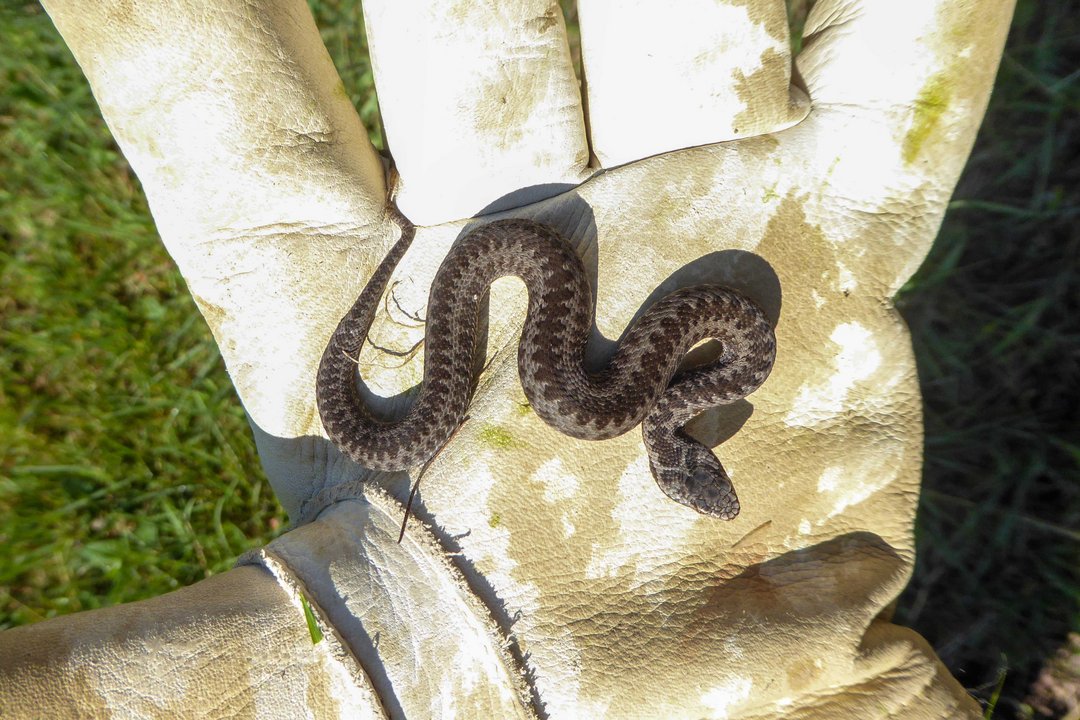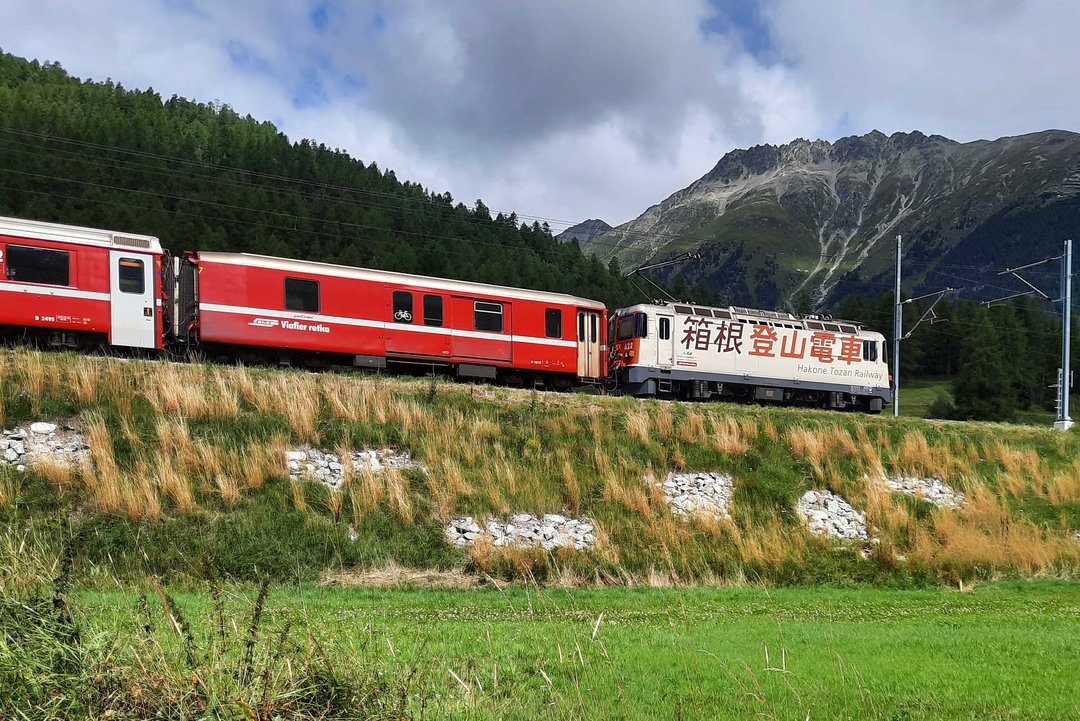Warenkorb
Sie haben keine Produkte im Warenkorb.
Exciting pictures from the double-track section Bever – Samedan. The adders have come through the construction work of recent years very well. The snakes once again have their habitat all to themselves. And they have offspring.
The young adders are usually born in the Upper Engadin in late August or early September. Strictly speaking, they hatch from an egg that is only laid by the mother when the young adder inside is fully developed, and the thin, transparent egg skin tears when it is laid or shortly afterwards. The approximately 18 cm long young snake is independent from the very first second: if disturbed, it defends itself by hissing, threatening and, if absolutely necessary, a poisonous bite.

Die junge Kreuzotter wirkt auf dem Handschuh geradezu winzig klein.
During the construction work for the double track, the adders were able to remain in their territory. The snakes were protected by a fence. And this was very successful, as the visit of Hans Schmocker from the EcCoronella nature conservation concern showed. After the commissioning of the double track and the removal of the protective fence, the adders took over their entire territory again. And they have had offspring: a sign that the snakes have recovered from the hustle and bustle of recent years.
RhB laid the foundation for this success story together with Hans Schmocker. As part of the project for the double-track expansion, he was tasked with monitoring the native adders as part of the overall environmental support. He developed a concept for how best to protect the adders from the construction work and the associated noise emissions, as well as disturbance. After his satisfying visit to the double track, his construction supervision will come to a close at the end of the year and he can successfully conclude the monitoring.

Der Doppelspurabschnitt bietet den Kreuzottern wieder einen optimalen Lebensraum.
The success story with the adders shows how important it is to protect the habitat of flora and fauna in a responsible manner, especially during “dramatic” activities such as building sites. Rhaetian Railway travels through breathtaking and wild natural landscapes, like hardly any other railway, and feels it is of immense importance to protect them.
If you would like to find out more about environmental support at our construction sites, we recommend the blog post Ten questions for Dr. Kirsten Edelkraut, Geographer / Project Manager Environmental Projects. Ms Edelkraut gives an insight into her work using the Val Varuna Tunnel I construction site as an example.
No comment has been made yet.
What do you think?